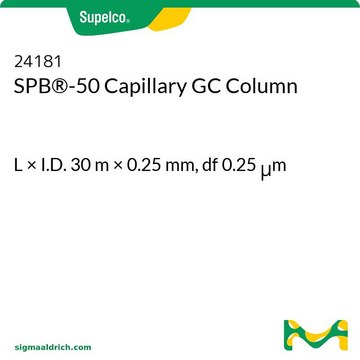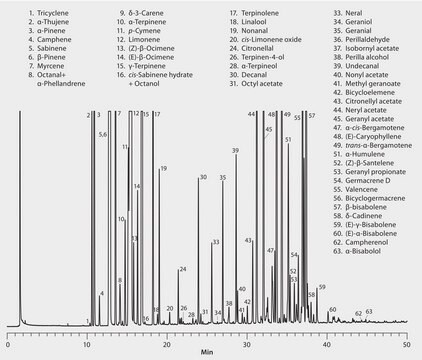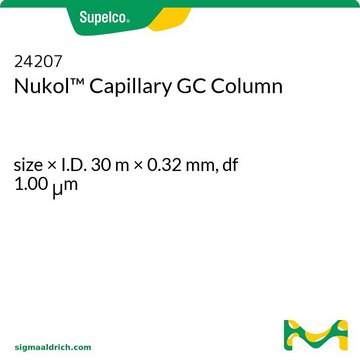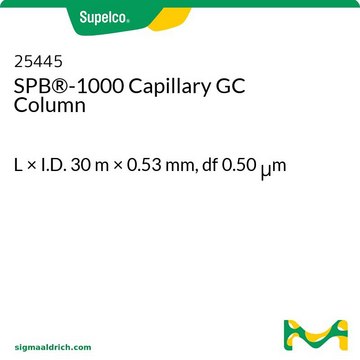24187
SPB®-50 Capillary GC Column
L × I.D. 30 m × 0.32 mm, df 0.25 μm
Sign Into View Organizational & Contract Pricing
All Photos(1)
About This Item
UNSPSC Code:
41115710
eCl@ss:
32119290
Recommended Products
material
fused silica
agency
meets requirements for USP G3
parameter
30-310 °C temperature (isothermal or programmed)
Beta value
320
df
0.25 μm
technique(s)
gas chromatography (GC): suitable
L × I.D.
30 m × 0.32 mm
matrix active group
Bonded; poly(50% diphenyl/50% dimethyl siloxane) phase
application(s)
environmental
food and beverages
column type
capillary intermediate polar
Looking for similar products? Visit Product Comparison Guide
General description
Application: This column has the highest phenyl content of the common phenyl-containing series of phases. The column is useful for analyses of polar analytes and provides useful confirmational information. It also offers additional selectivity for polynuclear aromatic hydrocarbon isomers over columns with lower phenyl content.
USP Code: This column meets USP G3 requirements.
Phase:
USP Code: This column meets USP G3 requirements.
Phase:
- Bonded
- Poly(50% diphenyl/50% dimethyl siloxane)
- 30 °C to 310 °C (isothermal or programmed)
Other Notes
We offer a variety of chromatography accessories including analytical syringes
Legal Information
SPB is a registered trademark of Merck KGaA, Darmstadt, Germany
Choose from one of the most recent versions:
Already Own This Product?
Find documentation for the products that you have recently purchased in the Document Library.
Blagoj Mitrevski et al.
Forensic science international, 152(2-3), 199-203 (2005-06-28)
A simple and rapid method for direct simultaneous determination of amphetamine, methamphetamine, 3,4-methylenedioxyamphetamine (MDA), 3,4-methylenedioxymethamphetamine (MDMA), 3,4-methylenedioxy-N-ethylamphetamine (MDEA) and N-methyl-1-(3,4-methylenedioxyphenyl)-2-butanamine (MBDB) in seized tablets was developed using gas chromatography with flame ionization detection. Separation of all six underivatized amphetamines, including
Our team of scientists has experience in all areas of research including Life Science, Material Science, Chemical Synthesis, Chromatography, Analytical and many others.
Contact Technical Service






